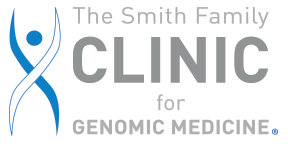Until recently, the idea of unlocking the secrets of our genes through genetic testing seemed like something out of a science fiction novel or something reserved for the wealthy elite.
The reality is that today, genetic testing is a crucial tool for understanding and safeguarding our health through personalized medicine.
Increasingly accessible and affordable, genetic testing now plays an important role in diagnostics and preventative medicine for individuals and families.
Read on to discover how genetic testing helps us understand our past as well as ensure a healthier future for ourselves and our families.

What is genetic testing?
Genetic testing refers to clinical tests that analyze your DNA to find information about your genetic makeup that may be related to disease, genetic conditions, or inherited traits.
This kind of testing can provide insights into your risk of developing certain conditions or diseases, your response to certain medications, and even your likelihood of passing on genetic conditions to your children.
By decoding your genetic blueprint, genetic testing empowers you and your healthcare providers to make informed decisions about preventative measures, treatment options, and lifestyle choices.
Who should get genetic testing?
Genetic testing may be recommended if:
- You want to know more about how to improve your health
- You have rare, more severe, or earlier symptoms of a disease such as heart disease or neurological disorders
- You have unexplained or complex symptoms, and an underlying genetic condition is suspected.
Genetic testing for proactive health
This type of genetic testing is a good fit if you’ve ever wondered if there are better medications for you, if you’ve considered what health conditions you might pass on to your child, or if you’re interested in better understanding your future risk for certain diseases. Genetic testing can help through:
Pharmacogenomic testing
Your DNA can cause common medications such as statins, blood thinners, painkillers, and more to work well or not be as effective. This kind of testing helps you determine the best medications for you.
Carrier screening
Carrier testing tests both parents’ DNA to help inform couples who are planning a family of their risks of having children with certain genetic conditions.
Disease risk testing
For patients who have a family history of a disease, such as cancer, heart disease, and others, disease risk testing can help patients know whether they need earlier or more advanced screenings.
Genetic testing for understanding a known diagnosis
Diseases like heart disease, certain neurological conditions, hearing and vision loss, and more are fairly common. If you were diagnosed at a younger-than-typical age or have more severe symptoms than what is expected, you may have an underlying genetic condition that is responsible for your symptoms. Genetic testing can help you receive a more targeted diagnosis, identify the best treatment and screening options for you, and help your physicians adapt your care plan to your specific needs.
Genetic testing for diagnosing a genetic condition
Genetic testing can help children and adults struggling with unexplained symptoms to receive a diagnosis, identify more targeted ways to treat symptoms, and help you understand where your symptoms come from. This type of testing can also identify the need for family members to receive life-saving screenings or preventative measures.

What results will I get from genetic testing?
When you receive genetic testing, it’s as if you’re asking your DNA for answers. Sometimes, those answers are readily available, and your genetic counselors are able to offer you more information, but sometimes science and technology may not have the answers – yet.
Genetic testing results can range from:
- Positive: Testing identified genetic changes known to cause disease.
- Negative: Testing did not find a genetic change that causes disease. If a known genetic condition exists in the family, a negative result can mean that a person did not inherit that condition. If someone has unexplained symptoms or undiagnosed disease, a negative result can mean there is not a genetic cause for these symptoms or current testing technologies were not able to detect the genetic cause.
- Uncertain: Testing identified a variant of uncertain significance (VUS), meaning that more research is needed to determine whether that gene is associated with disease.
Your genetic counseling team will guide you through the results, whether they are positive, negative, or uncertain, and help you identify the next steps if needed.
How can I get genetic testing?
The Smith Family Clinic for Genomic Medicine, LLC, is a nonprofit genetics clinic on the campus of HudsonAlpha Institute for Biotechnology specializing in using genetic testing and counseling to help individuals and families access better healthcare.
The Smith Family Clinic is staffed by a medical geneticist and board-certified genetic counselors who can guide you through which test is most appropriate for your needs, what your results mean, and how they affect you and your family’s future.
Contact the Smith Family Clinic to learn more about our services and how to request an appointment.


